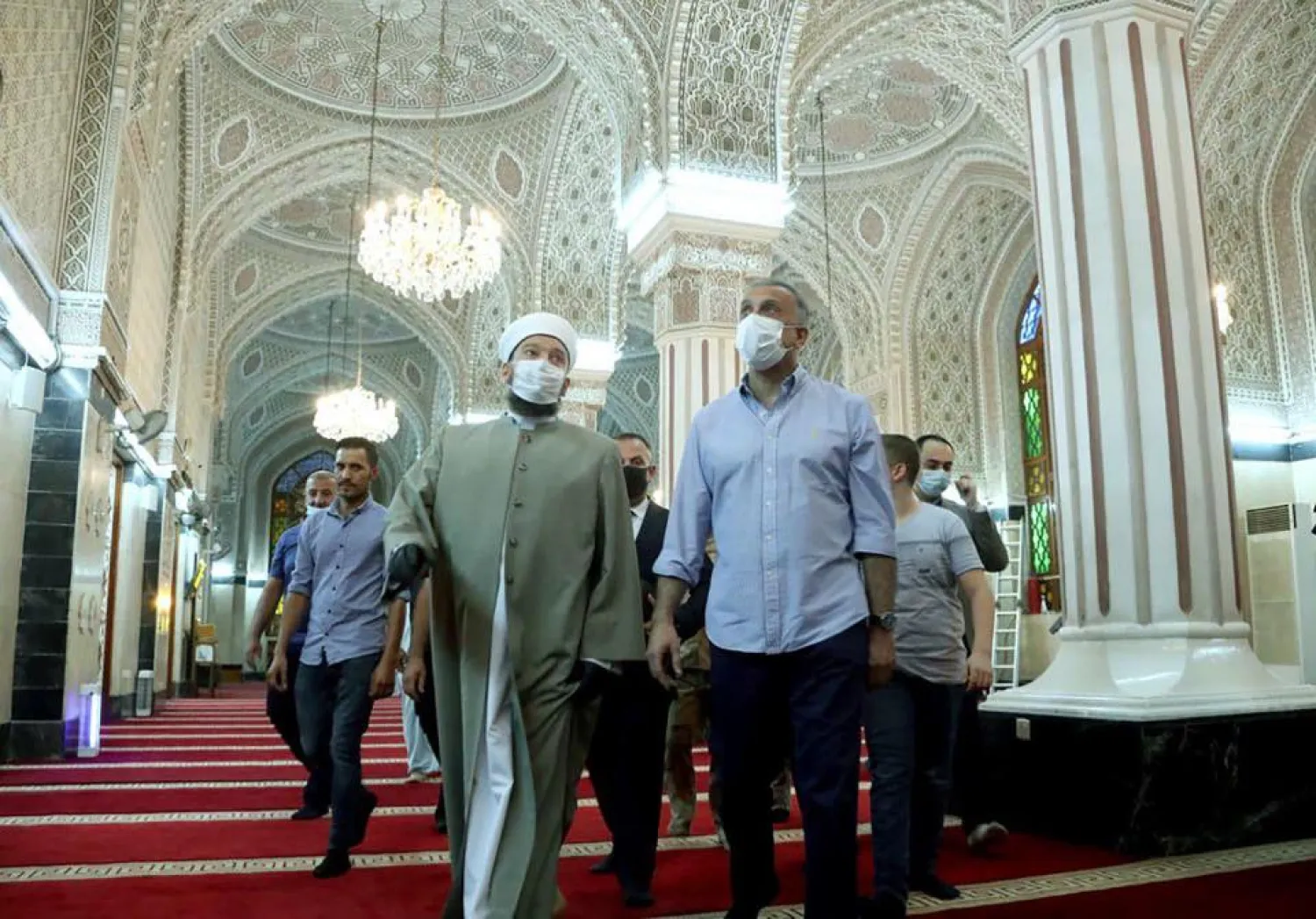Iraqi Prime Minister Mustafa al-Kadhimi paid a visit on Tuesday to the shrines of Imams Musa al-Kadhim and Abu Hanifa in Baghdad.
The visits are part of “soft” diplomatic and local moves Kadhimi is making to gain the trust of citizens in his government, three months after he was appointed to his position.
A previous move was his reception of a number of Yazidis on the sixth anniversary of a massacre committed by ISIS against the community in Sinjar. The latest of the PM’s gestures was his reception on Monday of a teenager who was the victim of abuse by security forces affiliated with the Interior Ministry.
A statement from his office, said that he visited the shrines, “praying to God that He will protect Iraq and its people.”
Kadhimi also visited the headquarters of the Iraqi Fiqh Council, where he met with several scholars and clerics to discuss general affairs. He underscored the important role played by religious figures in pursuing the interests of the people. He also hailed their role in bolstering societal peace and stability in the country.
The council is among the highest Sunni religious authorities in Iraq and is a reference for several of Iraq’s Sunni community.
The premier also met with Hussein Ismail al-Sadr, one of Baghdad’s most prominent Shiite officials and a major member of the Sadr family.
Kadhimi’s visit was widely praised by the public, given its humanitarian and national motives. His visit to the shrines demonstrates his efforts to bolster national unity and bridge divides caused by years of sectarian violence after the 2003 US invasion.









